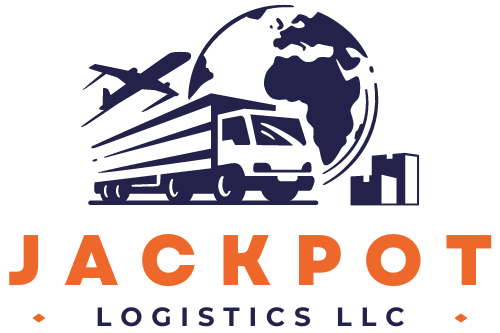The e-commerce revolution has fundamentally reshaped the retail landscape. Gone are the days of leisurely weekend shopping trips; consumers now expect a seamless online experience with speedy deliveries straight to their doorsteps. This shift in consumer behavior has placed immense pressure on traditional logistics models, demanding greater efficiency, agility, and innovation. For businesses to thrive in this new era, adapting their logistics strategies to the unique demands of e-commerce is paramount.
The E-commerce Effect: A Multifaceted Impact
The rise of e-commerce has significantly impacted the logistics industry in several key ways:
- Increased Order Volume and Frequency: E-commerce transactions are typically smaller and more frequent compared to traditional bulk orders. Logistics providers need to be equipped to handle this higher volume and faster turnaround times.
- Demand for Speed and Convenience: Consumers expect fast and reliable delivery options. One-day and same-day delivery are becoming increasingly common, pushing logistics providers to optimize fulfillment processes and explore faster shipping methods.
- The Last-Mile Challenge: The “last mile,” the final leg of the delivery journey from the warehouse to the customer’s doorstep, often presents the biggest challenge in e-commerce logistics. Optimizing last-mile delivery requires innovative solutions like urban warehousing, crowd-sourced delivery models, and leveraging technology for real-time tracking and communication.
- Greater Transparency and Visibility: E-commerce customers expect real-time order tracking and proactive communication regarding delivery timelines. Logistics providers need robust technology solutions to provide end-to-end visibility throughout the supply chain.
Adapting and Thriving: Strategies for Success in E-commerce Logistics
Recognizing the impact of e-commerce is crucial, but the real key to success lies in adapting your logistics strategies. Here are some actionable steps businesses can take to optimize their e-commerce logistics:
- Embrace Technology: Invest in warehouse management systems (WMS) and order fulfillment software to streamline picking, packing, and shipping processes. Real-time tracking and data analytics capabilities provide valuable insights to optimize routes and inventory management.
- Right-Size Your Warehousing: Consider strategically located warehouses closer to your customer base to facilitate faster deliveries and reduce last-mile costs. Urban warehousing solutions can be particularly beneficial for reaching customers within major cities.
- Explore Fulfillment Options: Outsourcing fulfillment services can be a strategic move for businesses looking to scale quickly or lacking the resources for in-house fulfillment. Third-party logistics (3PL) providers offer expertise, infrastructure, and economies of scale that can be highly beneficial.
- Offer Flexible Delivery Options: Cater to diverse customer preferences by offering a range of delivery options, including standard shipping, expedited services, same-day delivery (where feasible), and click-and-collect options.
- Prioritize Transparency: Implement systems to provide customers with real-time order tracking and proactive communication regarding delivery timelines. Managing customer expectations and addressing any potential delays proactively builds trust and loyalty.
- Invest in Sustainability: Consumers are increasingly environmentally conscious. Explore greener logistics options, such as optimizing delivery routes to reduce fuel consumption, utilizing eco-friendly packaging materials, and considering electric delivery vehicles when possible.
Collaboration is Key: Partnering for Logistics Success
Navigating the complexities of e-commerce logistics can be challenging. Partnering with a reliable and experienced logistics provider can be invaluable. Look for a partner who offers the following:
- Expertise in E-commerce Fulfillment: Choose a partner with a proven track record of handling e-commerce orders efficiently. They should understand the unique demands of e-commerce fulfillment and possess the necessary infrastructure and technology.
- Scalability and Flexibility: Your partner should be able to adapt and grow with your business. Consider their capacity to handle fluctuations in order volume and the ability to accommodate your future growth plans.
- Technology Integration: Seamless integration between your systems and your partner’s technology is crucial for efficient data exchange and real-time supply chain visibility.
The Future of E-commerce Logistics: Innovation and Agility
The e-commerce landscape is constantly evolving, and so must logistics strategies. Emerging trends such as drone deliveries, autonomous vehicles, and artificial intelligence (AI)-powered route optimization highlight the potential for further innovation. Businesses that embrace these advancements and remain agile will be best positioned to thrive in the dynamic world of e-commerce.

Hi, this is a comment.
To get started with moderating, editing, and deleting comments, please visit the Comments screen in the dashboard.
Commenter avatars come from Gravatar.